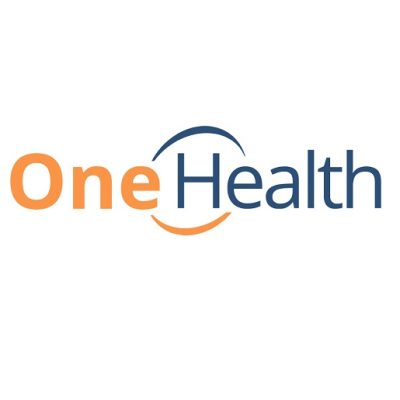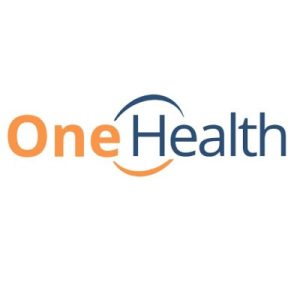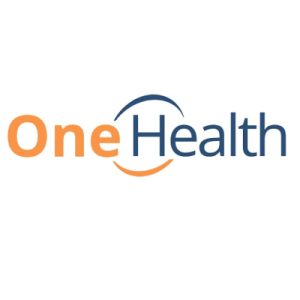One Health Group plc (AQSE:OHGR) Chairman Derek Bickerstaff caught up with DirectorsTalk for an exclusive interview to discuss how the company can help fix the NHS, how their corevalues are consistent with government’s planned reforms for the NHS, how they differ from other providers in the sector, and lobbying the government.
Q1: Derek, the new Secretary of State for Health and Social Care has already described the NHS as broken. Do you agree with this? And how can One Health Group help fix it, do you think?
A1: Broken is an emotive phase that surgeons wouldn’t necessarily use, but when used for impact by a politician to communicate the gravity of the problem, I believe it is justified.
From a layperson’s perspective, the system is broken. There are problems across all sectors of the health service, including primary care with poor access to GPs, secondary care with ever-growing waiting lists, cancer care with deteriorating speed of access and falling outcomes, social care with the knock-on effect on any waiting because of insufficient bed capacity, and mental health with measurable deteriorations post-COVID.
So, quite rightly, patients are furious and demand a better service, whilst the medical and nursing staff, who are working flat out under extreme conditions, feel undervalued with poor and deteriorating morale.
So, the service is indeed broken. It serves neither the patients nor those who work in it.
How the Secretary of State is going to fix this is a big question. There’s no single silver bullet reform of the NHS. The NHS is so huge and complex, there will be different solutions to different facets of the health service, let alone whether there needs to be a different funding system.
However, the fundamental principle of services being free at the point of delivery will not be abandoned. How this will be delivered and by whom is the question.
It’s interesting to note that the Secretary of State has commissioned an NHS review from Lord Darzi, who provided a similar report in 2008 for the last Labour administration under Tony Blair. Also, Paul Corrigan and Alan Milburn, both of whom were again instrumental in the health reforms of the 2000s, are providing advice. And these reforms had a positive impact.
By the end of the 2000s, the waiting list was at its lowest for 30 years and one of the actions that was taken during this period was more involvement of the independent sector to help with waiting lists. It remains to be seen what shape the health reforms will take, but we remain confident that Wes Streeting and Keir Starmer will be true to their word that the independent sector will be asked to provide some role in helping with the elective surgery waiting lists. And this is where we can help.
We can help the government in the management of the 7.8 million people on this elective waiting list, we have a national contract with the NHS through patient choice to offer patients appointments and surgery for orthopaedics, spinal surgery, general surgery, and gynaecology, which accounts for about 80% of the waiting list. We work over a steadily increasing geographical area in the north of England and the Midlands, and all our treatments are free to our patients, funded by the NHS, just like any NHS facility.
Indeed, although we are independent, we are an independent sector organisation, we consider ourselves an integral part of the NHS. We provide appointments in 35 community clinics in the more underprivileged areas that have poor access to both the NHS and other independent sector hospital groups.
One criticism of patient choice is that the choice offered by the independent sector is in the more affluent areas, which is where most private hospitals are based. We, however, offer choice to patients in more underprivileged, less affluent areas who may not be able to afford the transport costs. We take our surgeons out to the patients, not the other way around.
In addition, we are committed to the government’s request to use all available capacity to reduce the waiting lists. Indeed, we are taking this one stage further by increasing surgical capacity in the more underprivileged areas where there is poor provision by investing in our own surgical hubs. These surgical hubs are high spec, efficient operating facilities.
So, we believe we can provide a valuable service to the government in reducing the waiting list, whilst creating social value by widening access to surgery in the more underprivileged areas where there is relative scarcity in health capacity. Of course. Now, the new government seems committed to working with the independent sector.
Q2: How do you see this relationship evolving?
A2: I’ve just outlined what we can offer. How we can offer it is a different matter? We think that offering patients their choice of health provider underpins better access to elective surgery. But this needs to be improved so that there is more equality and better access to choice.
We also believe the independent sector, particularly organisations like ours, which are solely aimed at working with the NHS, should be better integrated in the local health communities. There needs to be collaboration amongst other health providers, be they state or independent, not controlled by any one party, as this would just stifle innovation, which is the lifeblood of efficiency and productivity, and is badly needed by the health service.
I would like to see a health service similar to those in Europe, where there is really no differentiation between state and independent sector. They are both equivalent systems where you can get your operation performed, but the NHS funded provision is overseen by the government to ensure value for money and outcomes through a strict regulatory system ensuring clinical governance.
Fundamentally, all NHS patients want is better access to high quality care performed in a timely manner, nearer their home, and that they don’t have to pay. They don’t really care by whom it’s provided.
Q3: What are the company’s core values? In what way are those core values consistent with the government’s planned reforms for the NHS?
A3: Well, One Health Group was created in 2004 in response to the last Labour administration’s call to independent sector organisations to help tackle waiting lists. So from the outset, we were set up to serve the NHS, not private patients.
Rather than simply build more hospitals, we sought a more fundamental approach to better provide the patient pathway by referral by the GP to the eventual discharge in good health.
So put simply, our basic core value is to improve access to care for the NHS patients.
We take our specialist surgeons out into the community clinics where they do all our consultations, our diagnostic tests, and our rehabilitation, rather than expecting the patient to come to the big hospital ivory towers. If they need surgery, they’re taken to facilities local to the patients and, as I explained earlier, if these facilities don’t exist, we will build them.
We have backed this up with an administrative process that provides patients with a named administrator who will guide them through this pathway. Meeting an operation will be one of the most stressful events in a patient’s life and making the process as seamless as possible is extremely important.
Although we set up these core values 20 years ago and have worked to deliver them ever since, they are still consistent with the new government’s plans. The government aims to involve the independent sector in reducing waiting lists, to provide more community care, to create social value by enhancing access to care, and although this isn’t explicitly made yet, encourage the independent sector to invest in NHS provided healthcare.
We tick all these boxes.
Q4: What differentiates the company from other providers in the sector?
A4: We believe the main differentiator from other providers in the secondary care sector is that we provide NHS-only NHS care in a community-based patient pathway, rather than a hospital-based pathway providing a hybrid private and NHS offering.
In so doing, we provide a wider choice to those in more remote and less affluent areas, which is of more social value. Everything we do is free at the point of delivery.
The independent sector hospital groups provide high quality care for those who can afford private care but will also help the NHS where they can. They are well-run businesses providing a great service. However, if you look at the patients through the lens of providing NHS care rather than private care, you need a service that provides better access for all NHS patients.
We believe our system of managing the patient care pathway is better for NHS patients. Okay.
Q5: Will One Health Group be lobbying the government on anything or any particular initiatives?
A5: Yes, we haven’t lobbied policymakers, but we have always been taking soundings, so we are better informed about the journey ahead rather than trying to influence the journey.
However, I believe we’re now entering a period of political history where there is the chance of meaningful reform of the health service. The company has 20 years of experience refining our patient pathway model, which we are convinced would be welcomed by the incoming government.
So, in answer to your question, we would lobby government on how we believe they could enhance the elective care provision of the health service by adopting the model that One Health Group uses and has used for the last 20 years.



